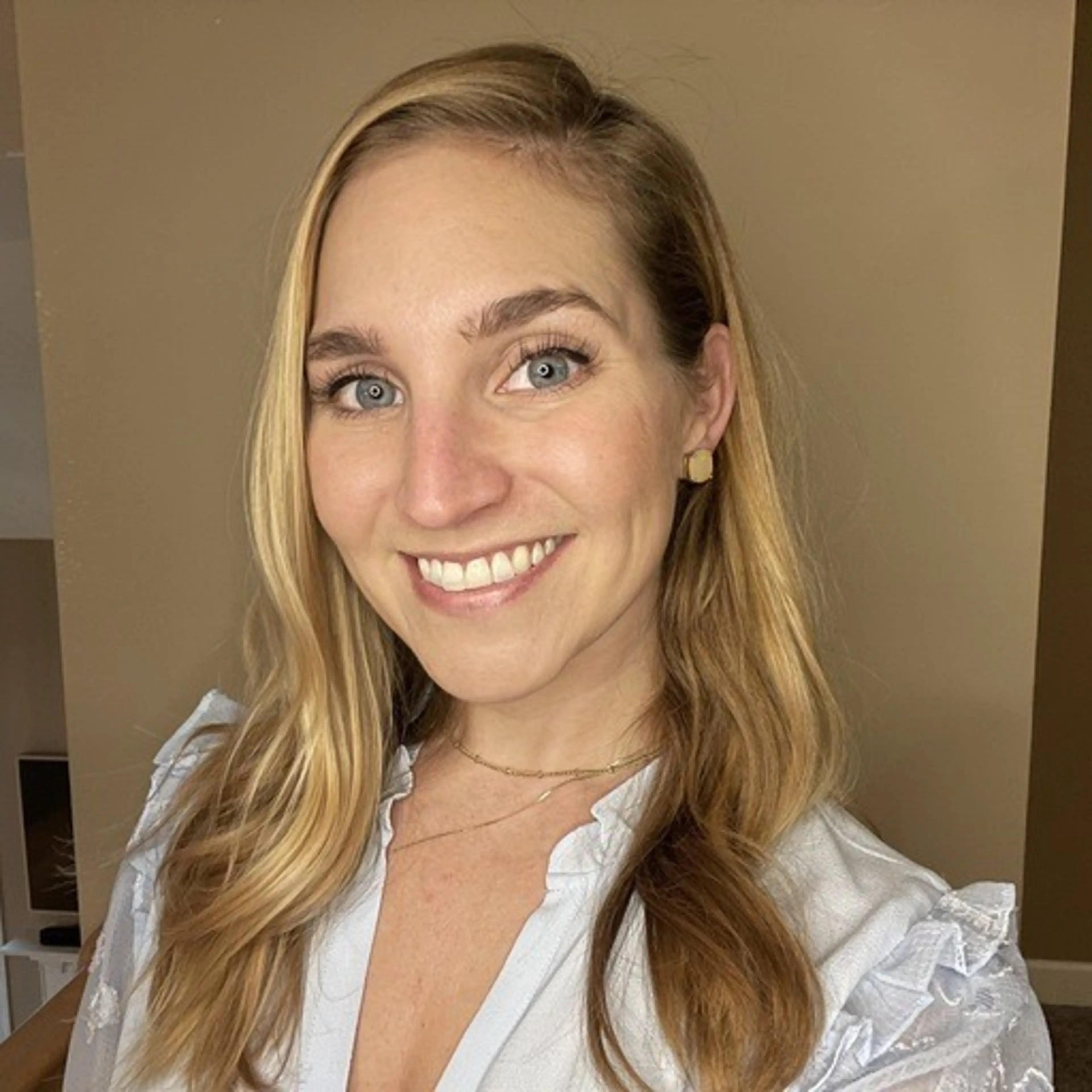TLDR: Lactation consultants can help with breastfeeding, but sometimes new moms hesitate to reach out because they don’t fully understand what LCs do and when they should ask for help. Here, an expert breaks down barriers to lactation help, including her advice on why you should get help a lot sooner than you need it.
There are few words that pack as much beauty, pressure, expectations, nourishment, and hard work than breastfeeding. It’s an act that we see culturally represented as one experience (private, connected, natural, enjoyable, and convenient), while it’s often lived as another (difficult, disconnected, challenging, painful, and exhausting). Breastfeeding (and exclusively pumping) can be a wonderful, beautiful gift, but it can sometimes come with serious hurdles. The practice of lactation is a complex biology that needs to be discussed more honestly and supportively.
That conversation should also include that the decision to not breastfeed, for whatever reason someone chooses, is just as valid and represented a pathway.
As a mother myself, I never imagined struggling as intensely as I did with breastfeeding. I figured that since I was choosing to breastfeed, I would breastfeed. I thought that was all it took. Well, let me dispel a myth right off the bat for you: just because you choose to breastfeed doesn’t mean it’s going to magically work. For some, it does. For me, it took work…like, a lot of work.
I’m a generally competitive person (mostly with myself), so when I couldn’t get this “natural” process right, I felt like a complete failure. I pushed and pushed and struggled and struggled. My baby was losing weight, and I was losing my mind.
That’s when I saw a lactation consultant.
I’ll never forget the way she looked at me and told me my baby was going to be okay, that I was going to be okay, and that we had options. The vulnerability I felt sitting on the couch in front of her, bearing my swollen chest and bags under my eyes, was so humbling. And because I wasn’t the first mother she saw in this state of desperation, nor the last, she knew exactly how to help. She mothered a mother. She taught me different maneuvers, showed me different tools, and helped me move beyond this internal battle of my expectations versus reality. I remember thinking, “Oh my gosh. If only I had come to you sooner.”
Because her professional breastfeeding help was so transformational to my postpartum experience, shedding light on the truths behind a lactation consultant’s work is important to me. It personally helped me prolong breastfeeding, ultimately moving to exclusive pumping, supplementing, and then weaning altogether.
I had the privilege to sit down with Carrie Dean1 , a lactation consultant, to talk through some of the misnomers surrounding breastfeeding and uncover some really hopeful, wonderful truths for the expecting and new moms out there.
True or False: To get the best results, you need to have a lactation consultant monitor you in person for optimal breastfeeding help.
Carrie Dean: That is false! There are so many things that we can notice and are trained to look for that we can definitely pick up on virtually. There are behaviors in mom and certain feeding behaviors with the baby. There are noises and sounds and positioning. So, there are many things we look and listen for, and we know to ask about that can be done virtually. We can also look for behaviors to see that the baby is actually satiated. I will explain to mom what I’m looking for and she will learn what to look for as well, so we can learn: Is baby frustrated? Is baby still hungry? Is baby satiated? Another really important plus is that being virtual allows this needed care to be much more accessible.
The one thing I hear from most parents is _______.
Dean: I had no idea there was so much to know. Meaning, we get into this place where we think that breastfeeding is ‘natural,’ that it’s ‘normal or the ‘norm,’ it’s what nature intended, and so we get into this territory [where] we think this should be easy and simple. And sometimes, it’s not. I always explain to my families that we’re dealing with two human bodies here, and we need all of their systems to be firing on all cylinders. Or that they’re two puzzle pieces that need to be perfectly matched up. It’s a very intricate system, so if one thing goes wrong, it affects the whole system. There is a lot of nuance to breastfeeding, and I often think parents are very surprised at how much information there is to know.
To reframe it: this is the norm. The norm is that there is a lot to know and there is a lot that goes into it, so there’s no shame and no one has done anything wrong. There’s just a lot to know and you just don’t know until you need to know sometimes.
My most fool-proof tip about breastfeeding assistance is _________.
Dean: I have two. I cannot stress the importance of learning how to hand express. This is without a doubt, the most useful tool you can have while breastfeeding or pumping.
And number two might sound obvious: learn how to ask for help. You come home with the baby, and I think it really is lost on a lot of parents to a) ask for help and b) know what you need to ask for. Get a running list of things you need help with, and share that with your support persons. The more specific, the better. Your people want to help you.
True or False: The best time to contact a lactation consultant is when you’re already having a problem.
Dean: False, false, false. Do. Not. Wait! There are actually several factors that will indicate that a mother should have a prenatal breastfeeding consultation. So many lactation consultants offer breastfeeding classes or very specific prenatal one-on-one consults where there’s an intake so you’re already aware of any issues or concerns. You can get ahead of them before your baby is even born. So, it’s never too early.
You can have a prenatal breastfeeding consult, and if not, I would say at the first sign—the first hint–of something being off, reach out. I always say to have a lactation consultant on speed dial, because the breastfeeding relationship is so intricate that if one thing goes slightly askew, that can snowball very quickly.
We can help with bottle feeding, latch issues, pain, milk supply issues…so I think the sooner the better. There is a lot involved. We can get you prepped with all of that information, and information is power. So you’re moving through empowered and ready for all these little twists and turns in the road to ultimately have a better breastfeeding scenario.”
True or False: Lactation has great health benefits for not only the baby, but the parent, too.
Dean: So true! True plus, plus. It’s very exciting! We’ve known these health benefits for babies for a very long time, and there is research out now showing the many health benefits for the lactating parent. Whether you’re pumping or breastfeeding, if you are producing milk, you are helping to bring yourself back to a state of health that [just living] a healthy lifestyle doesn’t give you.
It’s also hugely beneficial for preventing cancers,2 especially breast and ovarian. It lowers the risk of MS, hypertension, blood pressure, and heart disease. These aren’t small medical benefits, these are huge medical benefits. So it’s a win-win.”
Conclusion
As Dean has shown, the more we speak about the realities of breastfeeding, the more women entering this wonderful world of motherhood will be prepared for the transition. They may seek help sooner, from consultants who care and understand, and hopefully more women will have more positive experiences.









